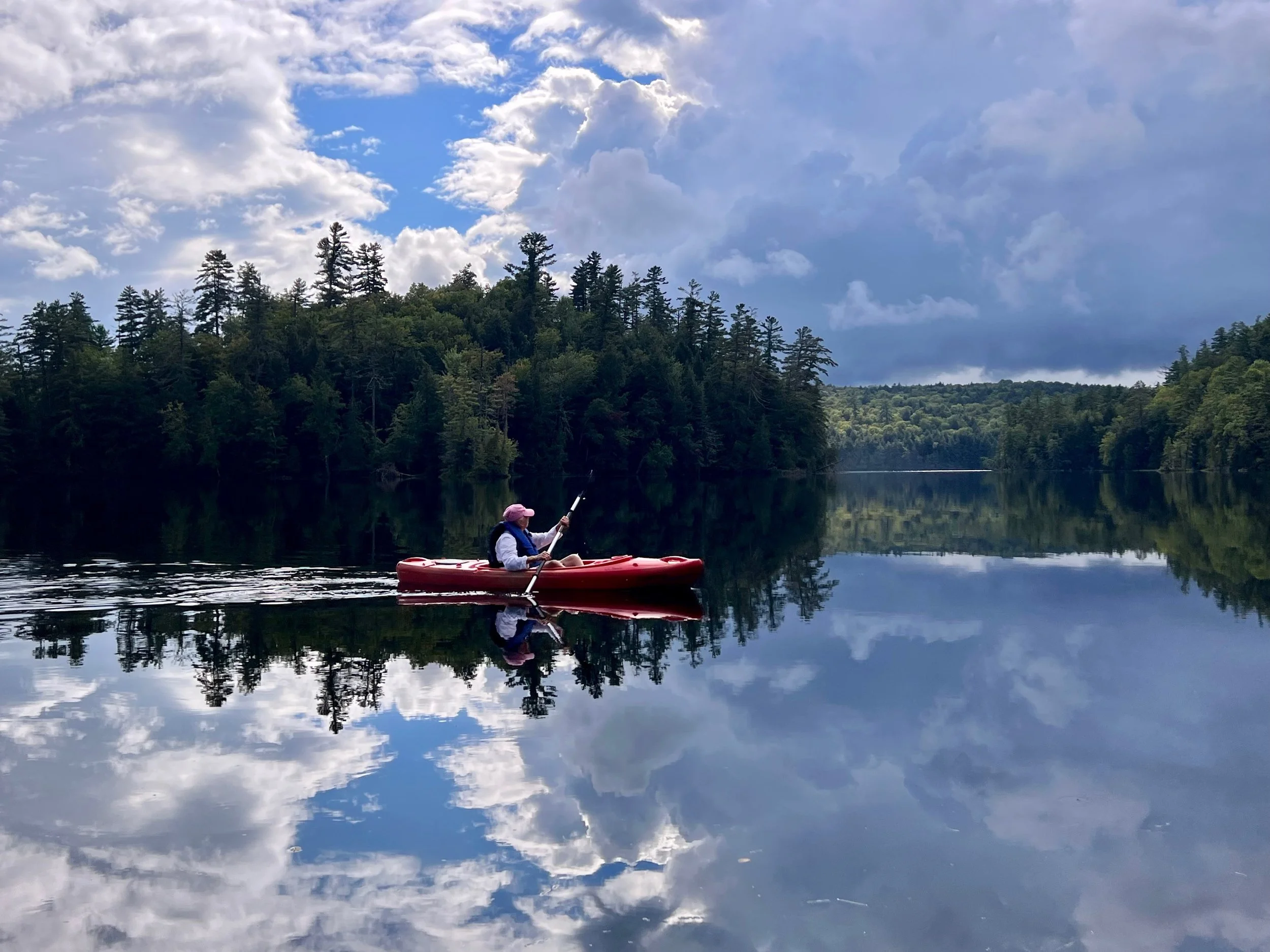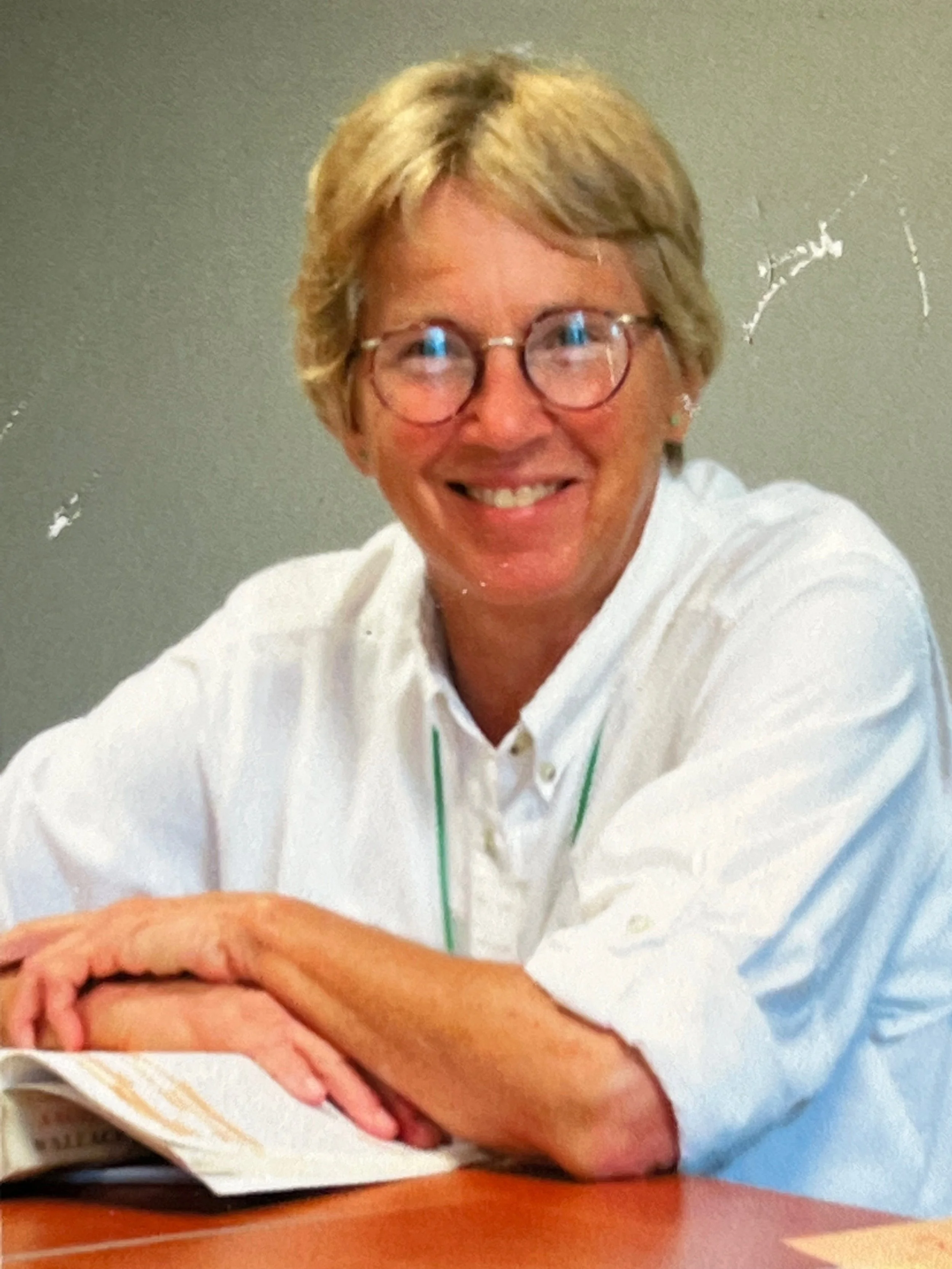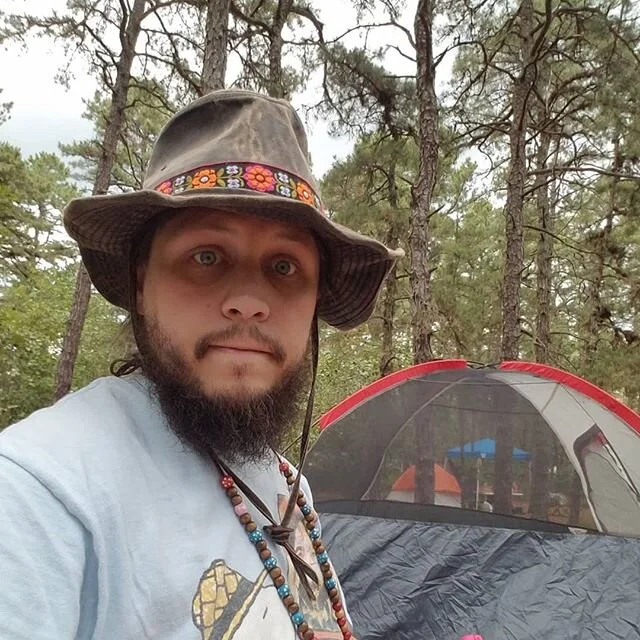can you miss a morning?
by Sue Cummings
can you miss a morning
like a bus or a boat?
find yourself –
standing
flat-footed, shrouded in a cloud
of blue – black smoke, on the hard
edge of a man-made curb
or stranded
without a prayer on a sea’s empty
shore staring absently out at a
distant watery-wake.
can you miss a morning
like a dream?
find yourself –
grieving
for what might have been
had you stopped to rest, or
over-slept without regret
or altogether
quit the race to place your bet
on what now you cannot
imagine
can you miss a morning
like a moment?
find yourself –
writing this poem
while the goose swims
crookedly-by on flat
black water
and the silver-blue heron
stands erect in new light
What draws you to poetry?
It’s the power that draws me – the concision (nothing wasted), and, of course, the payload! I love the thrill of having a dangerous, brave conversation with myself and a reader – searching for the “ insight so refined… it could kill you.”
The Real Trouble with Poetry
by Sue Cummings
After Billy Collins “The Trouble with Poetry”
The real trouble with poetry is not
that it is the mother of guppies,
or as irrelevant as that old man
sitting over there mumbling
who knows what?
No – the real trouble with poetry
is that it is so demanding,
stealing your attention like
a petulant child who won’t
take no for an answer.
Heck, who could ignore these lines,
after burying their mother?
I took the last
dusty piece of China
out of the barrel.
It was your gravy boat,
with a hard, brown
drop of gravy still
on the porcelain lip.
I grieved for you then
as I never had before.*
You see – the real trouble with poetry
is that it could kill you. It’s the turn,
the gesture, the insight so refined,
it stops your breath – leaves you
gasping on the ground, flopping around
like a fish in air.
(“What Came to Me” from Collected Poems. Copyright © 2005 by the Estate of Jane Kenyon. Used with the permission of Graywolf Press, Minneapolis, Minnesota, www.graywolfpress.org)
What are your muses?
My muse is a demanding “ethereal feminine presence.” She cannot be summoned. I believe it is my job as a wanna-be writer to actively live in a way that creates the conditions she requires to make an appearance. And when she arrives I must take care to obey the following rules: 1) I must give her my full, complete attention. 2) My mind must be scrubbed clean of any petty jealousies I have of the writing of other poets 3) I must trust her, and refrain from any willful derailment of her efforts to guide my pen. 4) I must live as a fireman, in perpetual readiness to receive her call. Oh yes – one more thing – she hates ingratitude!
How do you get from blank page to completed work?
I begin with a first thought, a first line and follow my mind. I hear the sounds of the words, and start to feel the mood of the poem. Unless I specifically intend to write to a form, I don’t pay attention to line breaks or stanzas or punctuation. My first order of business is to get the sounds of words onto the page –– let the poem breathe and tell me what it wants to say. The rest is theater.
I know you are involved with the LBI Poets’ Studio and Barnegat Poets’ Society. Can you tell us a little about these organizations?
Both the LBI Poets’ Studio and the Barnegat Poets’ Society are venerable old poetry groups, begun years ago in branches of the Ocean County Library. Since the pandemic both these groups have moved on-line (Zoom). Each group meets monthly, and there is some overlap in the membership. The LBI group meets the first Thursday of the month, 1-3PM; the Barnegat group meets the third Wednesday of the month 6-9PM. It is the purpose of both these groups to encourage and celebrate the writing of original poetry. These two groups meet together regularly for in-person Open Mic and socialization.
In both groups a prompt is offered, and a poet of the month is featured. Participants are invited to bring an original poem (written to the prompt or not). I am the coordinator of both groups, and I collect the poems to be read prior to the meeting, in order to provide an electronic file to all the members before gathering. During the Zoom Meeting poems are Screen-Shared, and each poet is invited to read their poem out-loud, this is followed by a re-reading of the poem by another member, and this is followed by a period of feedback to the poet. During feedback the poet is asked to remain silent. At the end of the feedback period the poet is invited to speak at will with the group about their poem. For more information, contact scummings817@comcast.net.
What are some advantages of engaging with a poetry community?
For pure joy and intellectual stimulation – there’s nothing in the world that beats the comradery of a community of poets. For me it’s heaven!
You’ve used Kindle Direct Publishing (KDP) to get your work out into your world. Can you tell us a little about your experience with this platform? https://kdp.amazon.com
KDP is a FREE, on-line self-publishing service, which provides instruction, templates, and live support for authors. It is associated with Amazon.com, though it operates independently. If you use KDP, and publish a book, it will automatically be sold through Amazon.com.
In 2019, under the pressure of deadline, I created and published a book entitled Painted Poetry VI (Amazon.com 2019) in less than three weeks using KDP. It cost me nothing, and I began without any knowledge of publishing, and a few computer skills. In 2022 I published a second book, PLC A Writer’s Memoir (Amazon.com, 2022), and I’m currently creating a third, About Time: A Collection of Poetry and Short Prose. I’m very satisfied with my KDP experience.
I don’t rely on Amazon customers for readers. I know my audience when I write a book, and I obtain author’s copies at half the cost of the Amazon sales price to sell directly. It’s nice that I can direct a stranger to my book on Amazon, where they can look inside and purchase it if they wish. I’ve sold more than 300 books, made a few hundred dollars, and best of all, I’ve had the thrill of enthusiastic readers! That’s priceless!!
You were a biologist in your pre-poetry life. Do you find connections between the two fields?
I wanted to be a scientist as soon as I learned what the word meant. At age 6, I discovered that polliwogs turn into frogs. I’m 78 now, and I still think that is amazing.
I became a Cell and Developmental Biologist at UC Irvine (1982), and I’ve had an incredible career as a research biologist and professor, studying dormancy in Schizoporella unicornis, a marine invertebrate; working on a vaccine against tooth decay; attempting to understand X Chromosome reactivation; figuring out what influences head regeneration and polarity in Hydra, and well, I do believe my child’s mind, its deep desire to understand the natural world, is the engine that drives my life and poetry. I’m coming to the end of my life, and what occupies me are the existential questions like – What’s goin’ on here? Why am I? Who’s in charge of this catastrophe, anyway!? Duh!?
Where can readers see more of your work/buy your books?
I’m currently gathering my poems and short prose into a book entitled, About Time (2024). A list of publications where you can read some of my poetry and/or prose is shown at the end of my Bio.
Sue Cummings is a 78 year old, retired research biologist and professor, who went Fly Fishing on the Youghiogheny River in Western Pennsylvania to fulfill a bucket list dream, and came home inexplicably wanting to write poetry. In 2015, she joined her local LBI Adult Writers’ Group, took a creative writing class for freshmen at Stockton University, and attended her first Writers’ Retreat. She’s been writing ever since.
These days Sue hosts and coordinates the LBI Poets’ Studio, The Barnegat Poets’ Society, and a weekly Writing Down the Bones Writing Practice Group. She has published two books Painted Poetry VI, ( A Collection of Ekphrastic Poems and Original Artwork by Local LBI Artists and Poets, Amazon, 2019), and PLC A Writer’s Memoir, (a sometimes hilarious, sometimes poignant account of her brief but spectacular writer’s life (Amazon 2022). She’s presently working on her third book, entitled About Time, a collection of her short prose and poetry.
Sue regularly contributes prose and poetry to her local LBI Sandpaper, the PLC Women Writers’ Retreat Anthology (2015- 2023), and her poetry may be found in the Weekend Poets of Pyramid (2015-16), Tour of Poetry (2018), the Aurorean (2020), Moonstone Press, (Haiku 2021). Sue is the featured poet in Breakers, Arts and Culture Magazine, (Nov. 2023, Issue 18).
John Wojtowicz grew up working on his family’s azalea and rhododendron nursery in the backwoods of what Ginsberg dubbed “nowhere Zen New Jersey.” Currently, he works as a licensed clinical social worker and adjunct professor. He has been featured on Rowan University’s Writer’s Roundtable on 89.7 WGLS-FM and several of his poems were chosen to be exhibited in Princeton University's 2021 Unique Minds: Creative Voices art show at the Lewis Center for the Arts. He has been nominated 3x for a Pushcart Prize and serves as the Local Lyrics contributor for The Mad Poets Society Blog. His debut chapbook Roadside Oddities: A Poetic Guide to American Oddities was released in early 2022 and can be purchased at www.johnwojtowicz.com. John lives with his wife and two children in Upper Deerfield, NJ.



